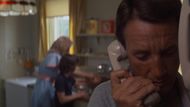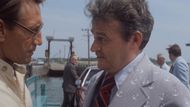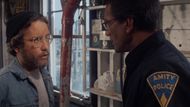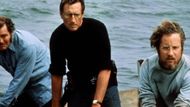Steven Spielberg's Jaws (1975) is commonly regarded as the first modern blockbuster, but underlying its tense shark-hunting story is a rich examination of human denial. The movie isn't merely terrorizing with dorsal fins and blood; it satirizes how people, institutions, and communities tend to dismiss unpleasant realities, particularly when they pose a threat to profit, pride, or public image.
In the hands of Amity Island's authorities and citizens, Jaws provides a test case of how denial can promote rather than limit danger. From the mayor's determination to keep beaches open to tourists to the townspeople's jubilation at capturing the wrong shark, every act of refusal to face reality is a teachable moment regarding crisis management.
In an era of climate denial, political spin, and disinformation of our time, Jaws is more resonant than ever. These seven moments of denial in the film extend far, far beyond 1970s beach terror. They can teach us about how denying warning signs, silencing authorities, and adopting quick fixes can be fatal. A lover of old movies, a student of human nature, or simply captivated by the way movies reflect society, these scenes provide lessons that remain biting.
These 7 moments of denial from Jaws you might find very educational
1. Mayor Vaughn refuses to close the beaches despite warnings

Mayor Vaughn's obstinate refusal to close beaches following Brody's warning emphasizes the conflict between civic responsibility. Contemporary criticisms identify his status as an "oily-charisma" antagonist, Angelica, but also reference his economic dilemma: Amity survives near-exclusively on summer tourists. Vaughn manipulates the coroner's report and creates a media moment by inviting families to return to the water attempts that resonate with actual-world political optics in contemporary crisis leadership.
This denial is not evidence of complete ignorance, but risk and image management, demonstrating how political leaders consistently deny inconvenient facts to save face.
2. The Coroner’s quick reversal: From shark attack to boating accident

After Chrissie's death, Amity's coroner abruptly changes from blaming the accident on a shark to pronouncing it a "boating accident." Even seemingly medical, in the end, it's political. This bureaucratic reversal foreshadows the contemporary phenomenon of "expert capture," where political pressure overcomes local authority. Film historians associate the coroner's action with more general institutional denial, placing short-term economic gain above scientific integrity.
Amity's society effectively erases inconvenient information, representing how fact can be a casualty in the face of groupthink and political pressure.
3. Dismissing Hooper’s expertise on the shark’s capabilities

When Hooper shows a huge great white tooth and facts from the initial victims, the mayor and onlookers laugh. The film offers a narrative; still powerful today: expert opinions silenced amid politicized discussion. Hooper's scientific explanation faces ridicule until the tiger shark sequence superficially justifies the mayor's worldview. In retrospect, Hooper's expertise serves as a symbol for minority opinions in wider society right but disenfranchised.
With today's increasing distrust of experts on climate or matters of public health, the stage is a prophetic warning against discounting expert voices amid collective denial.
4. The tiger shark blunder: Celebrating a false victory

Amity's residents celebrate the tiger shark's body, convinced that their terror is at an end until Hooper, the sole holdout, assures them it's the wrong animal. That jubilance mirrors the dangers of premature rejoicing, where symbolic wins take the place of real solutions. This false victory has new timeliness: we tend to declare "mission accomplished" in crises too soon.
Jaws analysts have compared this to a cautionary tale, one that reminds people not to get too complacent before the danger has been completely eliminated. It's an age-old lesson in the folly of announcing closure based on optics alone.
5. The town’s prioritization of tourism over public safety

Under the literal shark fear is a more profound social commentary: Amity's economy teeters on its tourism season. The mayor embodies this instability between fiscal ruin and human life. Critics identify this prioritization as similar to real-life situations in which governments play down disasters to ensure tourism or GDP. Similar to Vaughn, contemporary leaders tend to hesitate warnings, fearing economic damage.
Jaws casts the denial uniquely as systemic based on economic systems rather than malevolence. A two-week postponement becomes a collective decision, involving all citizens in the act of denial rather than just one obstinate mayor.
6. Mayor Vaughn still in denial after Alex Kintner’s death

When a young Alex Kintner is murdered, Vaughn resists complete responsibility, only going so far as a flimsy 24-hour beach closure. His refusal, even in the face of tragedy, reflects real-world denial when tragedies should surely elicit a response. Cultural commentators contend this reflects leadership lethargy in disasters where initial casualties create shock, but policymakers keep their full response on hold until public temperature insists.
Vaughn's obstinate procrastination until it strikes "home" demonstrates a transactional moral compass, albeit one which only reacts to pain when politically expedient, presenting a haunting lesson still repeated in current leaders' reluctance.
7. Allowing inexperienced locals to hunt the shark

Rather than employ experts, Vaughn monkey wrenches public safety by mobilizing amateur fishermen to slay the shark in the name of bounty-driven enthusiasm. This is reminiscent of contemporary crisis blunders, in which untrained players are drafted because of ideological persuasion or budgetary limitations. The combination of entitlement and denial aroused by civic pride betrays the period's "DIY" risk culture.
The amateur-hunting community is also a turning-point character lesson: Hooper and Brody caution that it's wrong to hunt sharks until late. This reminder that denial most often appears in the guise of unearned confidence is particularly apt in our era of disinformation.
Jaws is not a monster film. It's a lesson in how denial can sabotage logic, leadership, and lives. Every refusal to accept, from disregarding Hooper's experience to minimizing Alex Kintner's fatal accident, reflects crises in real life when the truth is uncomfortable. Spielberg's illustration of institutional blindness and personal ego turns the shark into an antagonist beyond a predator. It turns the shark into a metaphor for the repercussions we experience when denial trumps responsibility.
These seven instances of Jaws continue to be instructive and uncannily relevant today, serving as a reminder that the true peril frequently lies not beneath the waves but within our own unwillingness to confront reality.
Love movies? Try our Box Office Game and Movie Grid Game to test your film knowledge and have some fun!
